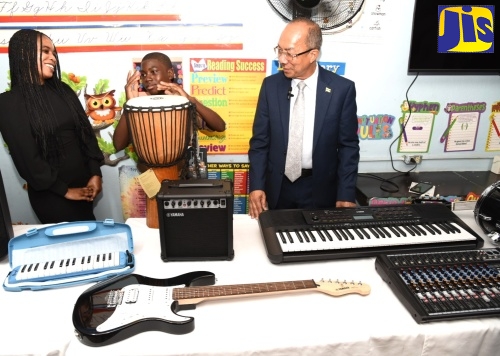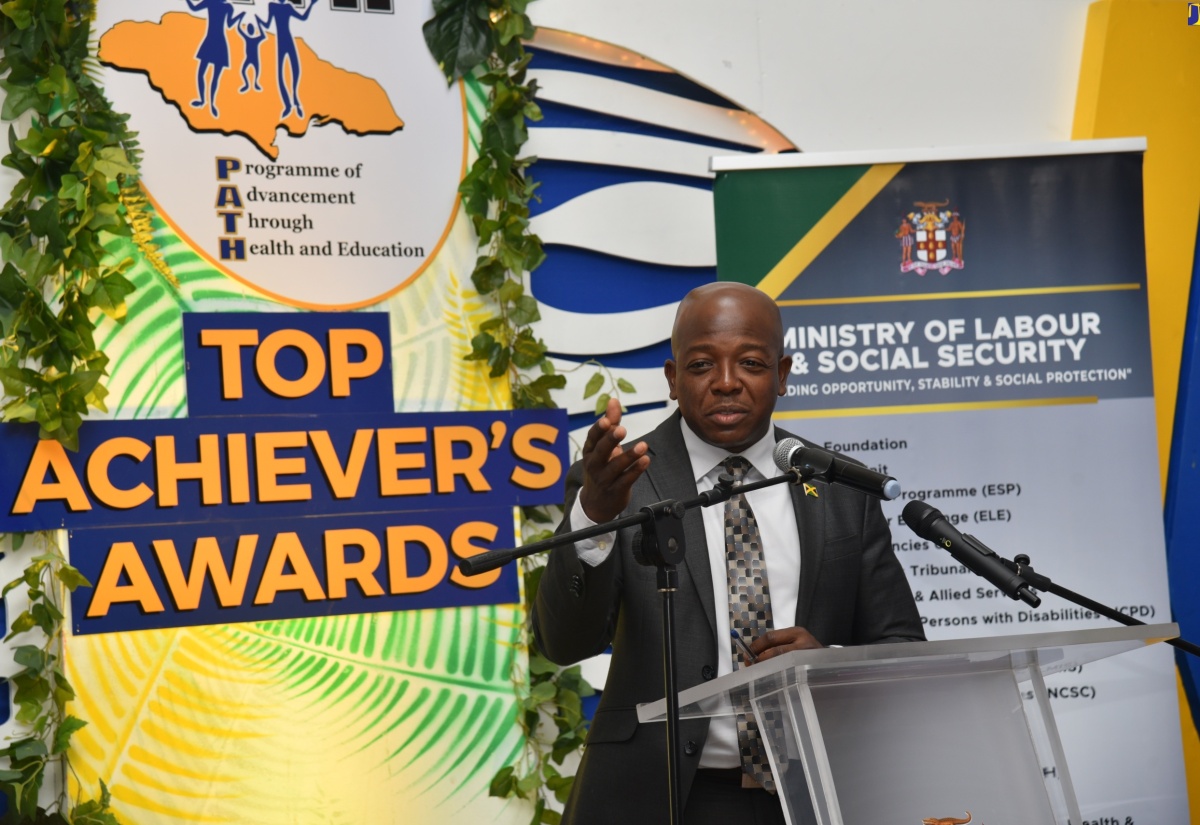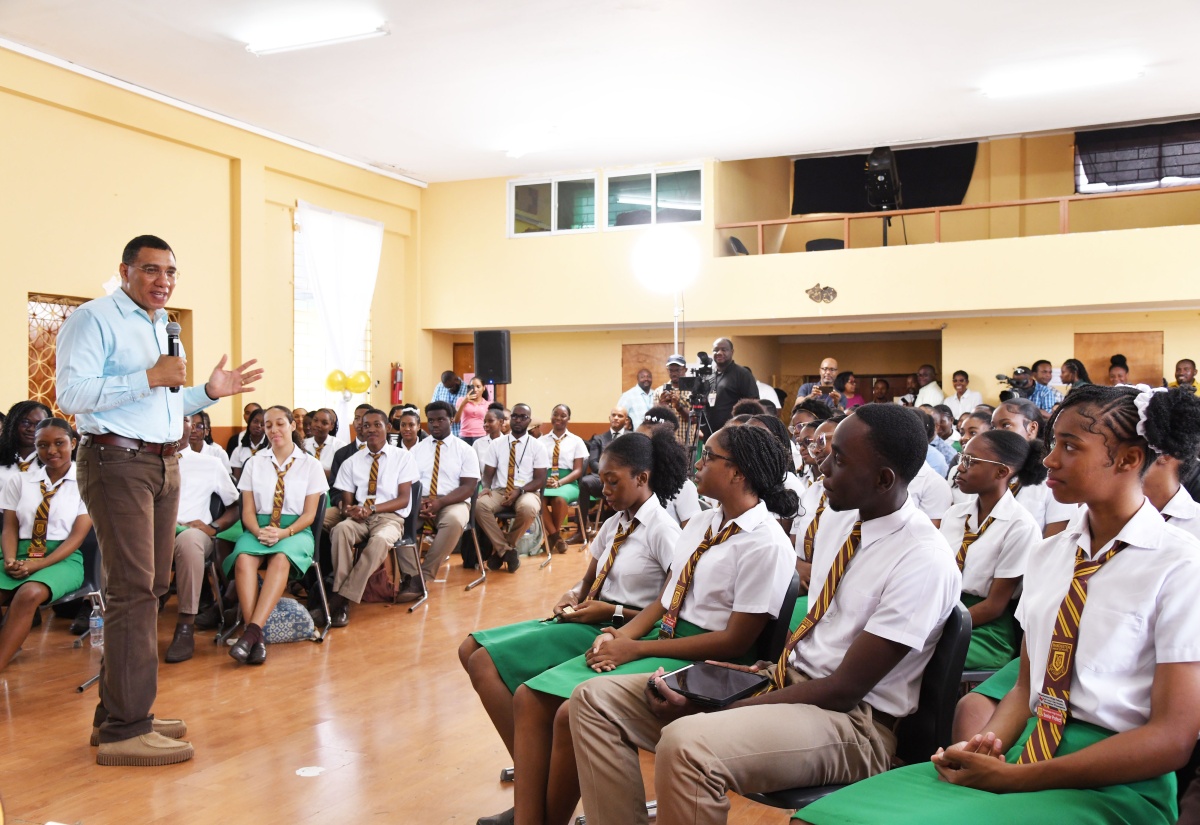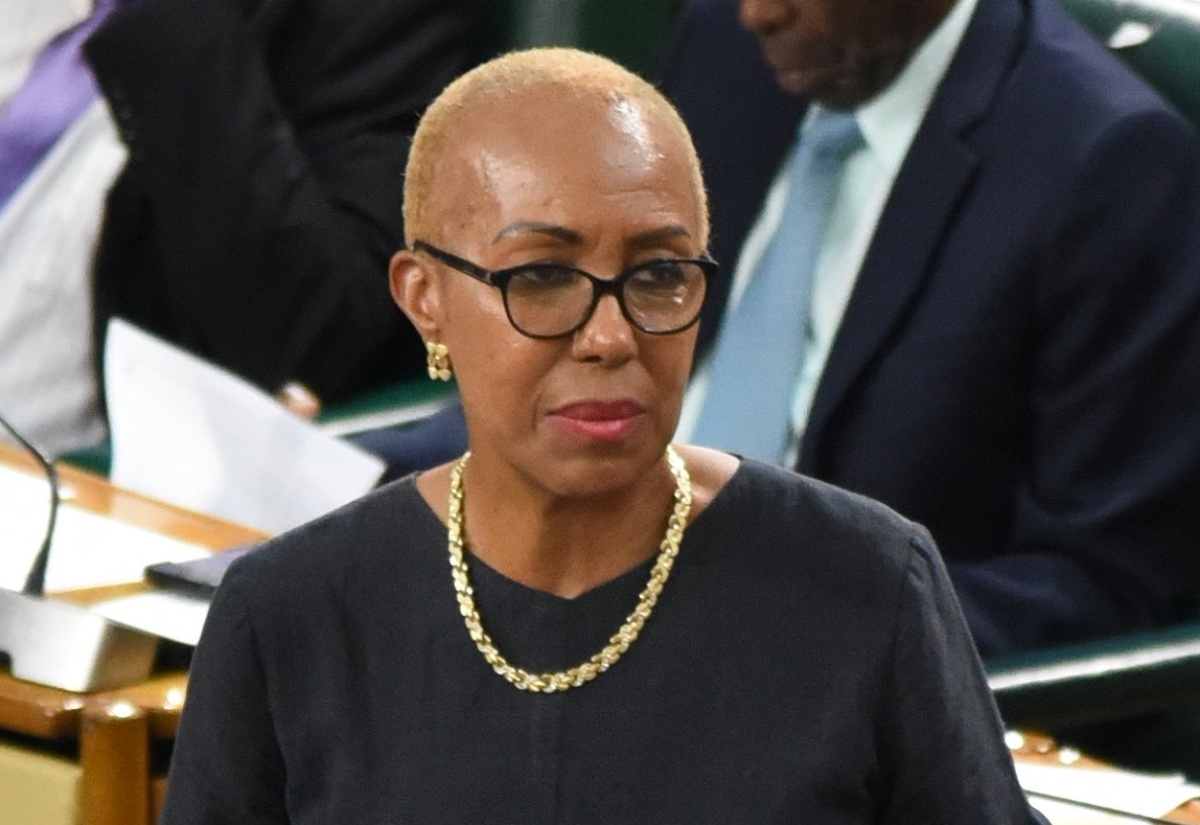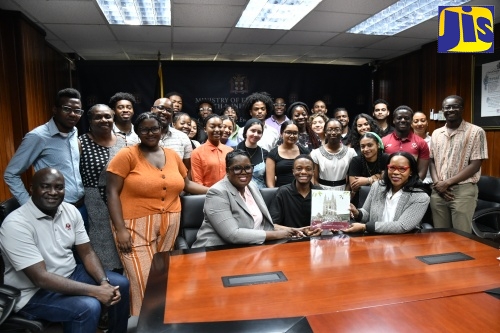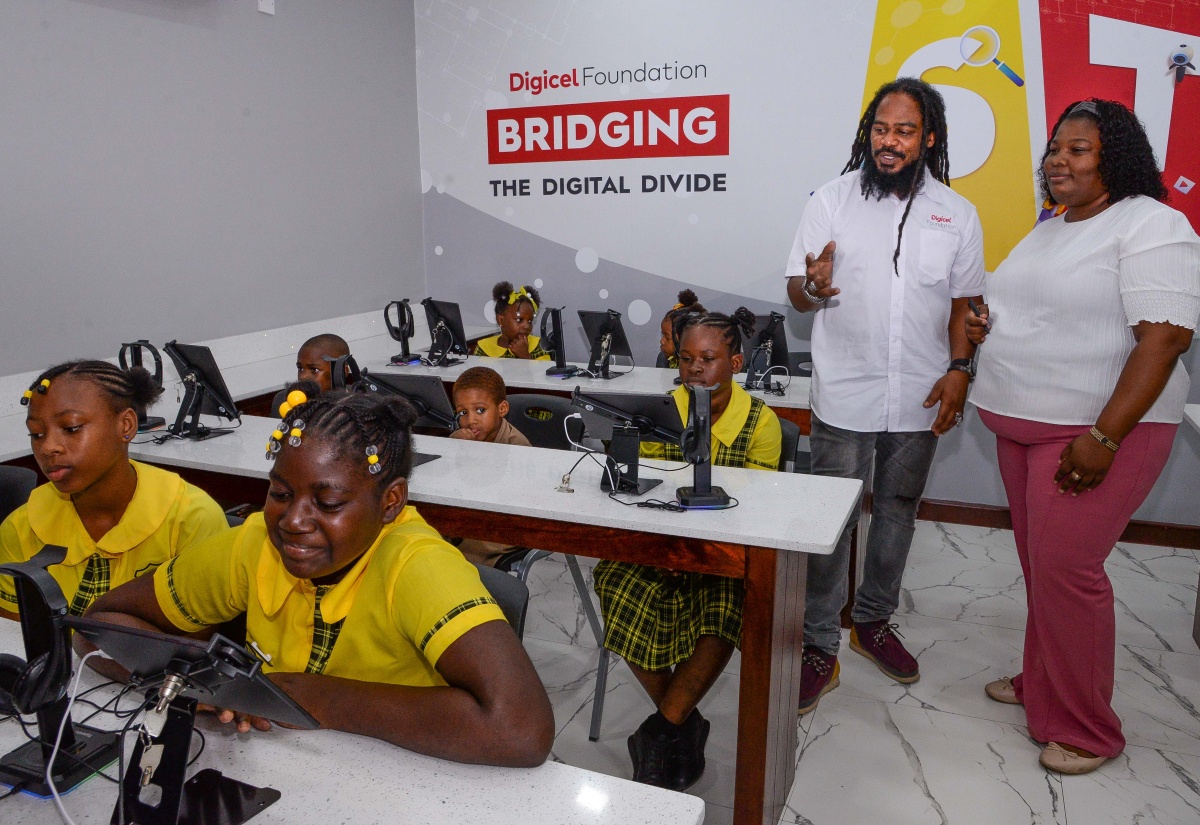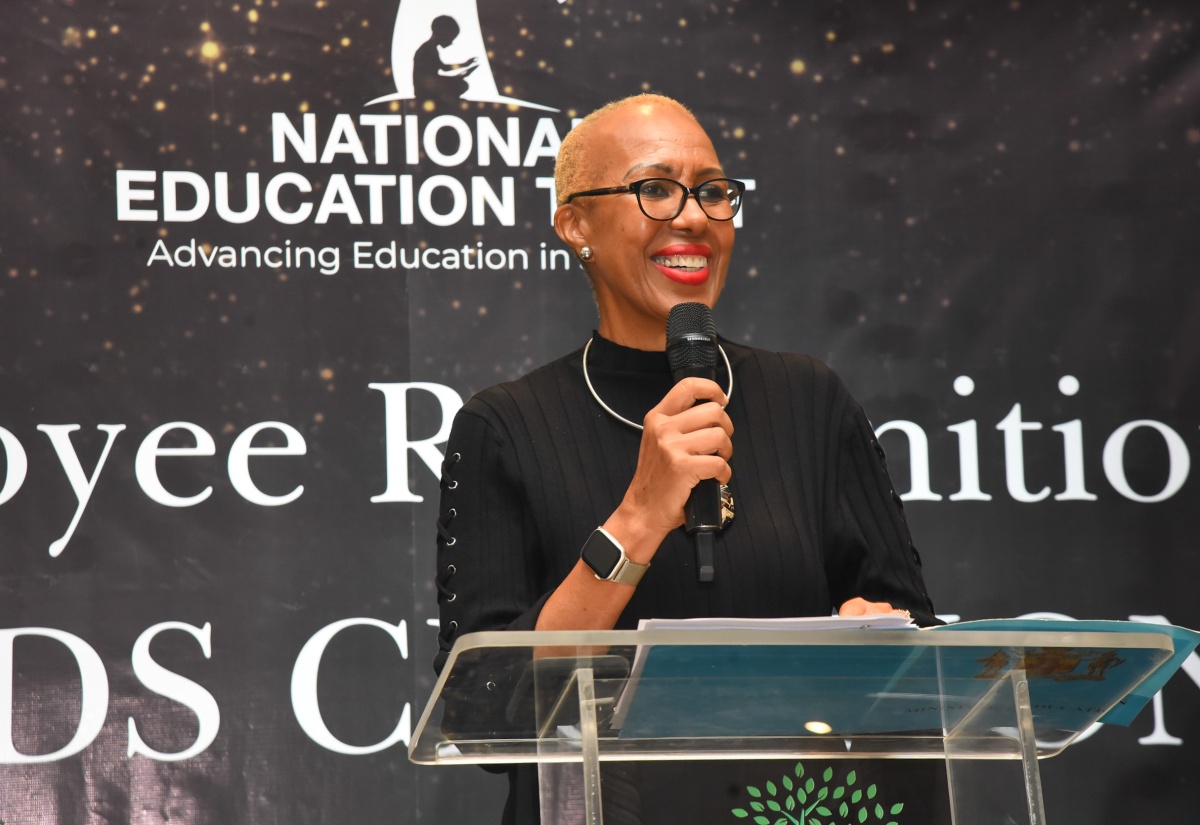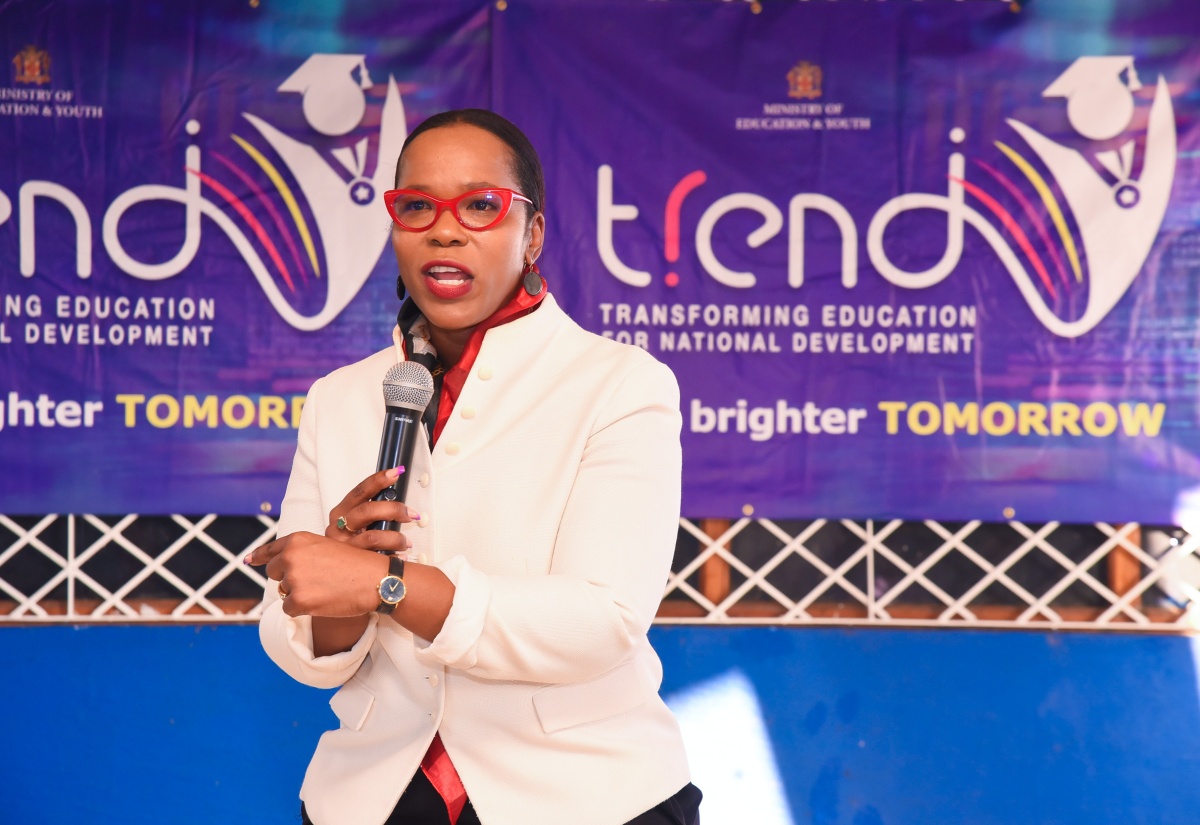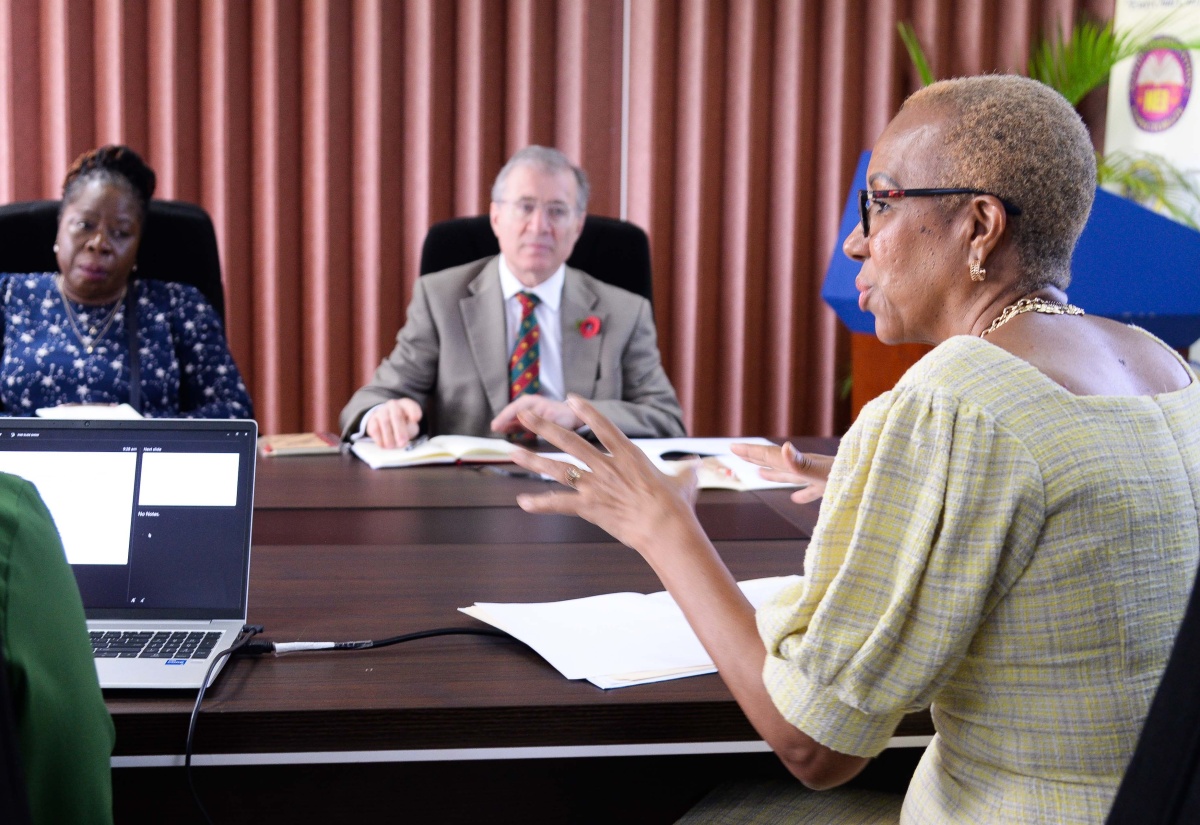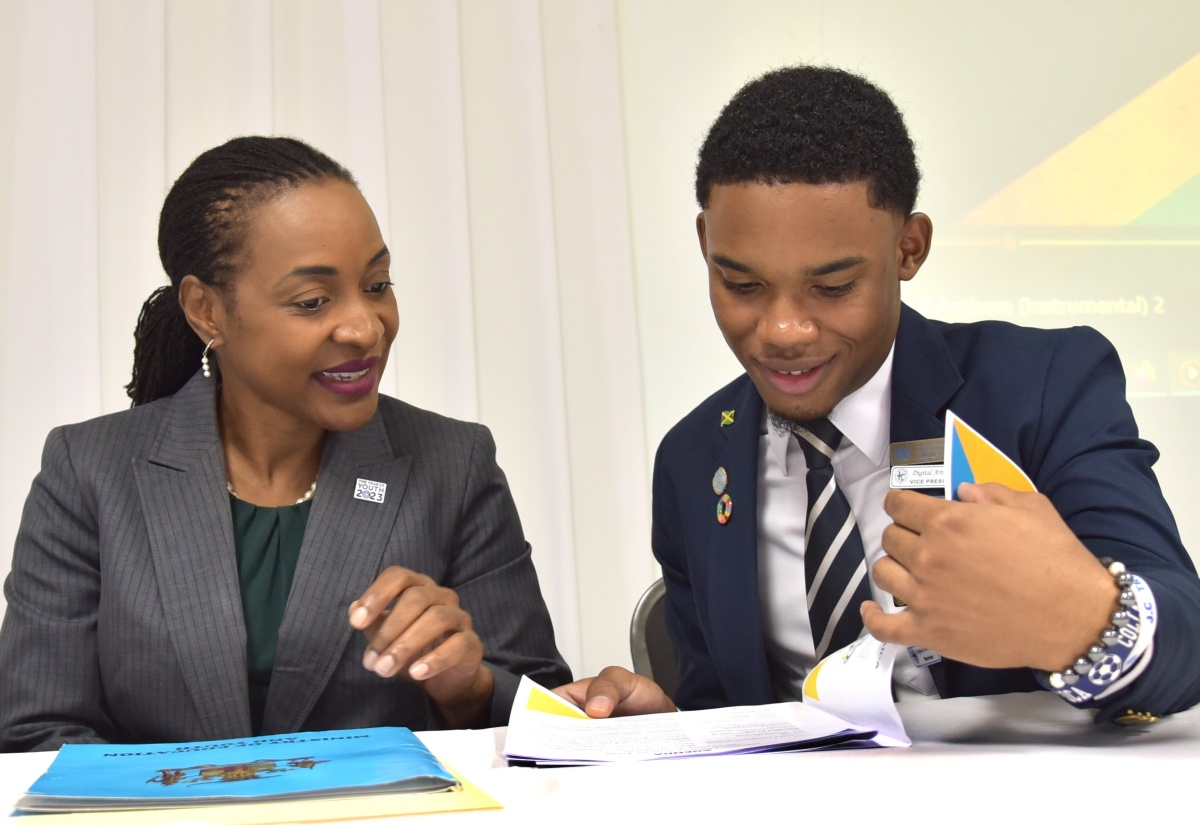The music programme at Kingston High School has been bolstered through the donation of musical instruments, valued at more than $1million, by the Ministry of National Security.
The items, provided under the Ministry’s Music, Sports, and Technology (MST) Initiative, include keyboards, acoustic and bass guitars, amplifiers, mixer board, microphones and stands, drums and percussion instruments.
Portfolio Minister, Hon. Dr. Horace Chang, in his address at the handover ceremony on Tuesday (April 9) at the school’s campus at 172 King’s Street, said the MST initiative underscores the Government’s focus on proactively addressing the root causes of violence by engaging and empowering youth.
“We look at bringing to the schools restoration of the music, sports and technology programmes,” he said.
Dr. Chang urged the staff and students to make good use of the musical instruments and noted the Government’s commitment to “bringing a level of support to the institution to help you to do the job to provide young people in this community with proper education”.
Acting Vice Principal, Sashauna Gordon, in expressing gratitude, said that music contributes to the enrichment of the students’ educational experience.
“Music holds a special place in our hearts and plays a vital role in our school community. It has the power to inspire creativity, foster teamwork and bring joy to our daily lives. The donation of these musical items not only embraces our existing music programme but also provides opportunities for students to explore their talents and passion in new and exciting ways,” she pointed out.
Music teacher, Michael Bennett, said the items will go a long way in enhancing the school’s music programme.
“We are very grateful for the items received. It will allow our students’ musical talents to blossom and to inspire even greater creativity,” he pointed out.
For his part, grade-nine student Jerome Williams, who aspires to become a musician, said the donation of the items is “truly a blessing”.
“I love music. It inspires me and it brings people together,” he added.
The MST initiative forms part of the Ministry’s national anti-violence campaign, which aims to promote community engagement initiatives, with a view to disrupting criminal activity, restoring public order and public safety, and encourage social responsibility.



